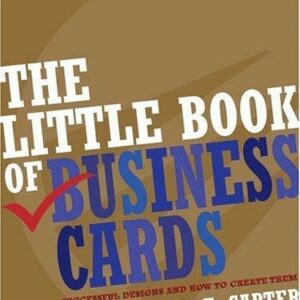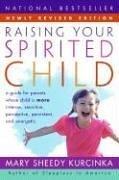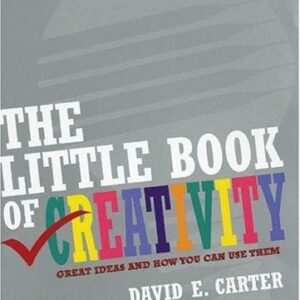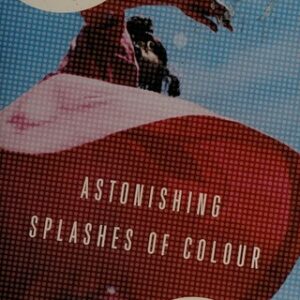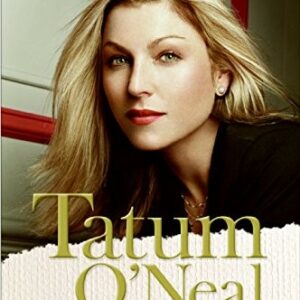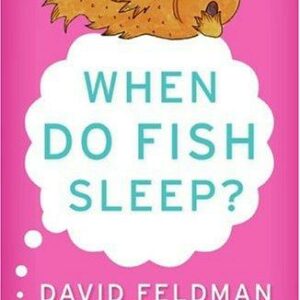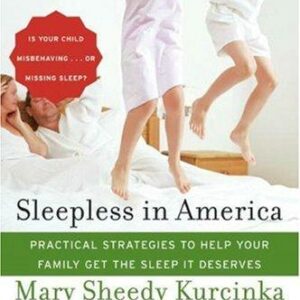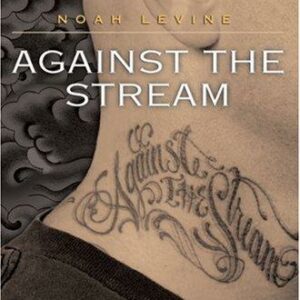The Penguin Book of English Verse
$24.00
| Title | Range | Discount |
|---|---|---|
| Trade Discount | 5 + | 25% |
- Description
- Additional information
Description
Spanning seven centuries, this ambitious and revelatory collection turns the traditional chronology of anthologies on its head, listing poems according to their first individual appearance in the language rather than by poet.
For more than seventy years, Penguin has been the leading publisher of classic literature in the English-speaking world. With more than 1,700 titles, Penguin Classics represents a global bookshelf of the best works throughout history and across genres and disciplines. Readers trust the series to provide authoritative texts enhanced by introductions and notes by distinguished scholars and contemporary authors, as well as up-to-date translations by award-winning translators.The Penguin Book of English VersePreface
1300-1350
(Rawlinson Lyrics)
Anonymous ‘Ich am of Irlande’
Anonymous ‘Maiden in the morë lay’
Anonymous ‘Al night by the rosë, rosë’
(Harley Lyrics)
Anonymous ‘Bitwenë March and Avëril’
Anonymous ‘Erthë tok of erthe’
1350-1400
(Grimestone Lyrics)
Anonymous ‘Gold and al this worldës wyn’
Anonymous ‘Gloria mundi est’
Anonymous ‘Love me broughte’
Anonymous (The Dragon Speaks)
Geoffrey Chaucer from The Parliament of Fowls
(Catalogue of the Birds)
(Roundel)
Geoffrey Chaucer from The Boke of Troilus
(Envoi)
Anonymous ‘When Adam dalf and Eve span’
William Langland from The Vision of Piers Plowman
(Prologue)
(Gluttony in the Ale-house)
Geoffrey Chaucer from The Canterbury Tales
from The General Prologue ‘Whan that Aprill with his shoures soote’
from The General Prologue (The Prioress)
from The Knight’s Tale (The Temple of Mars)
from The Knight’s Tale (Saturn)
from The Milleres Tale (Alysoun)
from The Wife of Bath’s Prologue ‘My fourthe housbonde was a revelour’
from The Pardoner’s Tale ‘Thise riotoures thre of whiche I telle’
Anonymous from Patience
(Jonah and the Whale)
Anonymous from Sir Gawain and the Green Knight
(Gawain Journeys North)
Geoffrey Chaucer Envoy to Scogan
John Gower from Confessio Amantis
(Pygmaleon)
(The Rape of Lucrece)
1430
Thomas Hoccleve from The Complaint of Hoccleve
‘Aftir that hervest inned had hise sheves’
1440
Charles of Orleans (Ballade) (‘In the forest of Noyous Hevynes’)
Charles of Orleans (Roundel) (‘Take, take this cosse, attonys, atonys, my hert!’)
Charles of Orleans (Roundel) (‘Go forth myn hert wyth my lady’)
1450
(Sloane Lyrics)
Anonymous ‘Adam lay y-bownden’
Anonymous ‘I syng of a mayden’
Anonymous ‘The merthe of alle this londe’
Anonymous (Christ Triumphant)
Anonymous (Holly against Ivy)
Anonymous ‘Ther is no rose of swych vertu’
1500
John Skelton from Phyllyp Sparowe
‘Whan I remembre agayn’
Robert Henryson from The Testament of Cresseid
‘O ladyis fair of Troy and Greece, attend’
William Dunbar Lament, When He Wes Seik
1510
William Dunbar ‘Done is a battell on the dragon blak’
William Dunbar ‘In to thir dirk and drublie dayis’
1515
Gavin Douglas/Virgil from The Aeneid
from Book I (Aeolus Looses the Winds)
from The Proloug of the Sevynt Buik of Eneados
Anonymous (the Corupus Christi Carol)
Anonymous ‘Farewell, this world! I take my leve for evere’
Anonymous ‘Draw me nere, draw me nere’
1520
Anonymous ‘Westron wynde when wyll thow blow’
1523
John Skelton from A Goodly Garlande or Chapelet of Laurell
(The Garden of the Muses: Iopas’ Song)
To Maystres Isabell Pennell
John Skelton from Speke Parott
(Parrot’s Complaint)
1530
William Cornish ‘Pleasure it is’
1535
Myles Coverdale from The Bible
Psalm 137: Super flumina
1540
Sir Thomas Wyatt/Petrarch ‘The longe love that in my thought doeth harbar’
Sir Thomas Wyatt/Petrarch ‘Who so list to hount I knowe where is an hynde’
Sir Thomas Wyatt ‘They fle from me that sometyme did me seke’
Sir Thomas Wyatt ‘My lute awake! Perfourme the last’
Sir Thomas Wyatt ‘Forget not yet the tryde entent’
Sir Thomas Wyatt/Alamanni ‘Myne owne John Poyntz, sins ye delight to know’
1542
Henry Howard, Earl of Surrey An Excellent Epitaffe of Syr Thomas Wyat
1547
Anne Askew The Balade whych Anne Askewe made and sange whan she was in Newgate
1557
from Tottel’s Songes and Sonettes
Sir Thomas Wyatt/Seneca (Chorus from Thyestes) (‘Stond who so list upon the Slipper toppe’)
Henry Howard, Earl of Surrey ‘O happy dames, that may embrace’
Henry Howard, Earl of Surrey ‘Alas, so all thinges nowe doe holde their peace’
Henry Howard, Earl of Surrey/Virgil from Certayn bokes of Virgiles Aenaeis
(Aeneas searches for his wife)
1560
from The Geneva Bible, Ecclesiastes 3:1-8 (‘To all things there is an appointed time’)
Robert Weever ‘Of Youth He Singeth’
1563
Barnabe Googe Commynge Home-warde out of Spayne
Barnabe Googe An Epytaphe of the Death of Nicolas Grimoald
1565
Arthur Golding/Ovid from The First Four Books of Ovid
(Proserpine and Dis)
(Daphne and Apollo)
1567
Arthur Golding/Ovid from The Fifteen Books of Ovid
(Medea’s Incantation)
1568
Alexander Scott ‘To luve unluvit it is ane pane’
Anonymous ‘Christ was the word that spake it’
1579
Edmund Spenser from The Shepheardes Calender (Roundelay)
1580
Edmund Spenser Iambicum Trimetrum
1581
Jasper Heywood/Seneca (Chorus from Hercules Furens)
1582
Thomas Watson My Love is Past
1584
Anonymous A New Courtly Sonet, of the Lady Greensleeves
1586
Chidiock Tichborne ‘My prime of youth is but a froste of cares’
1588
Anonymous ‘Constant Penelope, sends to thee carelesse Ulisses‘
Anonymous/Theocritus from Sixe Idillia . . . chosen out of . . . Theocritus
(Adonis)
1589
Sir Philip Sidney ‘My true love hath my hart, and I have his’
1590
Sir Walter Raleigh ‘As you came from the holy land’
Mark Alexander Boyd Sonet (‘Fra banc to banc fra wod to wod I rin’)
Sir Henry Lee ‘His Golden lockes, Time hath to Silver turn’d’
Edmund Spenser from The Faerie Queene
from Book II, Canto XII (The Bower of Blisse Destroyed)
from Book III, Canto VI (The Gardin of Adonis)
from Book III, Canto XI (Britomart in the House of the Enchanter Busyrane)
1591
Sir Philip Sidney from Astrophil and Stella
1. ‘Loving in truth, and faine in verse my love to show’
31. ‘With how sad steps, ô Moone, thou climb’st the skies’
33. ‘I might, unhappie word, ô me, I might’
Thomas Campion ‘Harke, al you ladies that do sleep’
Sir John Harrington/Ariosto from Ariosto’s Orlando Furioso (Astolfo flies by Chariot to the Moon)
1592
John Lyly from Midas
‘Pan’s Syrinx was a Girle indeed’
Samuel Daniel from Delia
45. ‘Care-charmer sleepe, sonne of the Sable night’
Henry Constable ‘Deere to my soule, then leave me not forsaken’
Sir Walter Raleigh The Lie
1593
from The Phoenix Nest
Anonymous ‘Praisd be Dianas faire and harmles light’
Thomas Lodge The Sheepheards Sorrow, Being Disdained in Love
Barnabe Barnes from Parthenophil and Parthenophe (Sestina)
(‘Then, first with lockes disheveled, and bare’)
Sir Philip Sidney from The Countess of Pembroke’s Arcadia
‘Yee Gote-heard Gods, that love the grassie mountaines’
1594
William Shakespeare from Love’s Labours Lost
‘When Dasies pied, and Violets blew‘
Anonymous ‘Weare I a Kinge I coude commande content’
1595
Edmund Spenser from Amoretti
Sonnet LXVII. (‘Lyke as a huntsman after weary chace’)
Sonnet LXVIII. (‘Most glorious Lord of lyfe that on this day’)
Robert Southwell S. J. Decease Release
Robert Southwell S.J. New Heaven, New Warre
Robert Southwell S.J. The Burning Babe
George Peele from The Old Wives Tale
‘When as the Rie reach to the chin’
‘Gently dip: but not too deepe’
1596
Edmund Spenser Prothalamion
Sir John Davies In Cosmum
Sir John Davies from Orchestra, or a Poeme of Dauncing
(‘The speach of Love persuading men to learn Dancing’)
1597
Anonymous ‘Since Bonny-boots was dead, that so divinely’
William Alabaster Of the Reed That the Jews Set in Our Saviour’s Hand
William Alabaster Of His Conversion
Robert Sidney, Earl of Leicester ‘Forsaken woods, trees with sharpe storms opprest’
1598
Sir Philip Sidney ‘When to my deadlie pleasure’
Sir Philip Sidney ‘Leave me ô Love, which reachest but to dust’
Mary Herbert, Countess of Pembroke Psalm 58 (‘And call yee this to utter what is just’)
Mary Herbert, Countess of Pembroke from Psalm 139 (‘Each inmost peece in me is thine’)
Christopher Marlowe from Hero and Leander
‘His bodie was as straight as Circes wand’
Anonymous ‘Hark, all ye lovely saints above’
Christopher Marlowe/Ovid from All Ovids Elegies
Book I, Elegia 5 (‘In summers heat and mid-time of the day’)
Book III, Elegia 13 (‘Seeing thou art faire, I barre not thy false playing’)
John Donne On His Mistris
1599
Michael Drayton from Idea
5. ‘Nothing but No and I, and I and No’
Alexander Hume from Of the Day Estivall
‘O perfite light, quhik schaid away’
George Peele from David and Fair Bethsabe
‘Hot sunne, coole fire, tempered with sweet aire’
Samuel Daniel from Musophilus
(Stonehenge)
1600
Fulke Greville, Lord Brooke from Caelica
Sonnet XLV. (‘Absence, the noble truce’)
Sonnet LXXXIV. (‘Farewell sweet boy, complaine not of my truth’)
Sonnet LXXXV. (‘Love is the Peace, whereto all thoughts doe strive’)
Sonnet XCIX. (‘Downe in the depth of mine iniquity’)
Sonnet C. (‘In Night when colours all to blacke are cast’)
from Englands Helicon
Anonymous The Sheepheeards Description of Love
Christopher Marlowe The Passionate Sheepheard to his Love
Sir Walter Ralegh The Nimphs Reply to the Sheepheard
Thomas Nashe from Summers Last Will and Testament
‘Fayre Summer droops, droope men and beasts therefore’
‘Adieu, farewell earths blisse’
Anonymous (A Lament for Our Lady’s Shrine at Walsingham)
Anonymous ‘Fine knacks for ladies, cheape choise brave and new’
Anonymous ‘Thule, the period of cosmography’
1601
John Holmes ‘Thus Bonny-boots the birthday celebrated’
William Shakespeare from Twelfth Night
‘When that I was and a little tiny boy’
William Shakespeare (The Phoenix and Turtle)
Thomas Campion/Catulus ‘My sweetest Lesbia, let us live and love’
Thomas Campion ‘Followe thy faire sunne unhappy shaddowe’
Thomas Campion/Propertius ‘When thou must home to shades of under ground’
1602
Anonymous ‘The lowest trees have tops, the Ant her gall’
Thomas Campion ‘Rose-cheekt Lawra come’
1603
Anonymous ‘Weepe you no more sad fountaines’
1604
Anonymous The Passionate Mans Pilgrimage
Nicholas Breton from A Solemne Long Enduring Passion
‘Wearie thoughts doe waite upon me’
1607
Ben Jonson/Catullus from Volpone
‘Come my Celia, let us prove’
1608
Anonymous ‘Ay me, alas, heigh ho, heigh ho!’
1609
Ben Jonson from Epicoene
‘Still to be neat, still to be dresst’
Edmund Spenser from Two Cantos of Mutabilitie
(Nature’s Reply to Mutabilitie)
William Shakespeare from Sonnets
18. ‘Shall I compare thee to a Summers day?’
55. ‘Not marble, nor the guilded monuments’
60. ‘Like as the waves make towards the pibled shore’
66. ‘Tyr’d with all these for restfull death I cry’
73. ‘That time of yeeare thou maist in me behold’
94. ‘They that have powre to hurt, and will doe none’
107. ‘Not mine owne feares, nor the prophetick soule’
116. ‘Let me not to the marriage of true mindes’
124. ‘Yf my deare love were but the childe of state’
129. ‘Th’expence of Spirit in a waste of shame’
138. ‘When my love sweares that she is made of truth’
144. ‘Two loves I have of comfort and dispaire’
William Shakespeare from Cymbeline
‘Feare no more the heate o’th’Sun’
Anonymous (Inscription in Osmington Church, Dorset)
Anonymous (Inscription in St. Mary Magdalene Church, Milk Street, London)
1610
John Davies of Hereford The Author Loving These Homely Meats
1611
from The Authorized Version of the Bible
2 Samuel 1:19-27 David lamenteth the death of Jonathan
Job 3:3-26 Job curseth the day, and services of his birth
Ecclesiastes 12:1-8 The Creator is to be remembered in due time
George Chapman/Homer from The Iliads of Homer
from The Third Booke (Helen and the Elders on the Ramparts)
from The Twelfth Booke (Sarpedon’s Speech to Glaucus)
Anonymous A Belmans Song
William Shakespeare from The Winter’s Tale
‘When Daffadils begin to peere‘
‘Lawne as white as driven Snow‘
William Shakespeare from The Tempest
‘Come unto these yellow sands‘
‘Full fadom five they Father lies‘
1612
John Webster from The White Divel
‘Call for the Robin-Red-brest and the wren‘
George Chapman/Epictetus Pleasd with thy Place
Thomas Campion ‘Never weather-beaten Saile’
William Fowler ‘Ship-broken men whom stormy seas sore toss’
1614
John Webster from The Dutchesse of Malfy
‘Hearke, now every thing is still‘
1615
Sir John Harington Of Treason
Anonymous (Tom o’ Bedlam’s Song)
1616
Ben Jonson from Epigrammes
XIV. To William Camden
XLV. On My First Sonne
LIX. On Spies
CSVIII. Inviting a Friend to Supper
CI. On Gut
Ben Jonson from The Forrest To Heaven
William Drummond of Hawthornden Sonnet (‘How many times Nights silent Queene her Face’)
William Browne from Britannia’s Pastorals
(The Golden Age: Flower-weaving)
Thomas Campion ‘There is a Garden in her face’
Thomas Campion ‘Now winter nights enlarge’
1618
Sir Walter Ralegh (Sir Walter Ralegh to his Sonne)
Sir Walter Ralegh from The Ocean to Scinthia
‘Butt stay my thoughts, make end, geve fortune way’
Sir Walter Ralegh ‘Even suche is tyme that takes in trust’
1619
Michael Drayton from Idea
61. ‘Since ther’s no helpe, Come let us kisse and part’
Anonymous ‘Sweet Suffolk owl, so trimly dight’
1620
John Donne The Canonization
John Donne A Nocturnall upon S. Lucies Day
John Donne Loves Growth
John Donne A Valediction: Forbidding Mourning
John Donne The Exstasie
John Donne from Holy Sonnets
VII. ‘At the round earths imagin’d corners’
X. ‘Death be not proud, though some have called thee’
XIV. ‘Batter my heart, three person’d God’
John Donne A Hymne to Christ, at the Authors last Going into Germany
John Donne A Hymne to God the Father
1621
Katherine, Lady Dyer (Epitaph on Sir William Dyer)
Lady Mary Wroth from Pamphilia to Amphilanthus
77. ‘In this strang labourinth how shall I turne?
96. ‘Late in the Forest I did Cupid see’
1623
William Drummond of Hawthornden (For the Baptiste)
William Drummond of Hawthornden (Content and Resolute)
William Browne On the Countesse Dowager of Pembroke
1624
Sir Henry Wotton On his Mistress, the Queen of Bohemia
1626
George Sandys/Ausonius Echo
1627
Ben Jonson My Picture left in Scotland
Ben Jonson An Ode. To Himselfe
Michael Drayton from Nimphidia, The Court of Fayrie
(Queen Mab’s Chariot)
1631
Michael Drayton These Verses weare Made by Michaell Drayton
(‘Soe well I love thee, as without thee I’)
Anonymous Felton’s Epitaph
Anonymous (Epitaph on the Duke of Buckingham)
1633
George Herbert from The Temple
Redemption
Prayer
Church-monuments
Deniall
Hope
The Collar
The Flower
The Answer
A Wreath
Love
1635
Francis Quarles Embleme IV (Canticles 7.10 I am my Beloved’s)
1637
Edward, Lord Herbert of Cherbury Epitaph on Sir Philip Sidney
Robert Sempill of Beltrees The Life and Death of Habbie Simson, the Piper of Kilbarchan
Thomas Jordan A Double Acrostich on Mrs Svsanna Blvnt
John Milton from A Mask Presented at Ludlow-Castle, 1634
(Comus)
‘The Star that bids the Shepherd fold’
1638
Thomas Randolph A Gratulatory to Mr Ben. Johnson
Sir John Suckling Song (‘Why so pale and wan fond Lover?’)
John Milton Lycidas
1640
Ben Jonson from A Celebration of Charis, in Ten Lyrick Peeces (Her Triumph)
Ben Jonson (A Fragment of Petronius Arbiter)
Sidney Godolphin ‘Faire Friend, ’tis true, your beauties move’
Sidney Godolphin ‘Lord when the wise men came from Farr’
Henry King An Exequy to His Matchlesse Never to be Forgotten Freind
Thomas Carew Song. Celia singing
Thomas Carew Epitaph on the Lady Mary Villers
Thomas Carew Maria Wentworth
Thomas Carew A Song (‘Aske me no more whither doe stray’)
Thomas Carew Psalme 91
William Habington Nox nocti indicat Scientiam
William Habington To Castara, Upon an Embrace
1641
Anonymous On Francis Drake
Sir Henry Wotton/Martial Upon the Death of Sir Albert Morton’s Wife
1642
Sir John Denham from Cooper’s Hill
‘Here should my wonder dwell, and here my praise’
1645
Edmund Waller Song (‘Go lovely Rose’)
Edmund Waller Of the Marriage of the Dwarfs
Edmund Waller To a Lady in a Garden
John Milton from On the Morning of Christs Nativity Compos’d 1629
‘It was the Winter wilde’
1646
Richard Crashaw from Divine Epigrams
Upon Our Saviours Tombe Wherein Never Man was Laid
Upon the Infant Martyrs
Richard Crashaw Musicks Duell
Sir John Suckling (Loves Siege)
John Hall An Epicurean Ode
James Shirley Epitaph on the Duke of Buckingham
James Shirley ‘The glories of our blood and state’
1647
John Cleveland Epitaph on the Earl of Strafford
1648
Sir Richard Fanshawe/Gongora A Great Favorit Beheaded
Robert Herrick from Hesperides
The Argument of His Book
Upon Julia’s Voice
Delight in Disorder
To the Virgins, to Make Much of Time
The Comming of Good Luck
To Meddowes
The Departure of the Good Daemon
Upon Prew His Maid
On Himselfe
Robert Herrick The White Island: Or Place of the Blest
1649
Richard Lovelace from Lucasta
Song. To Lucasta, Going to the Warres
To Althea from Prison
The Grasse-hopper
William Drummond/Passerat Song
“Shephard loveth thow me vell?’
1650
James Graham, Marquis of Montrose On Himself, upon Hearing What was His Sentence
Anonymous from The Second Scottish Psalter
Psalm 124
Henry Vaughan from Silex Scintillans, Or Sacred Poems
The Retreate
‘Silence, and stealth of dayes! ’tis now’
The World
1651
William Cartwright No Platonique Love
John Cleveland The Antiplatonick
John Cleveland A Song of Marke Anthony
Thomas Stanley The Snow-ball
Thomas Stanley The Grassehopper
Sir Henry Wotton Upon the Sudden Restraint of the Earle of Somerset
Sir Richard Fanshawe/Horace Odes. IV, 7 To L. Manlius Torquatus
Richard Crashaw from The Flaming Heart. Upon the Book and Picture of the Seraphicall Saint Teresa
1653
Aurelian Townshend A Dialogue betwixt Time and a Pilgrime
Margaret Cavendish, Duchess of Newcastle Of Many Worlds in This World
1655
Henry Vaughan from Silex Scintillans II
‘They are all gone into the world of light!’
Cock-crowing
The Night
1656
Abraham Cowley from Anacreontiques Translated Paraphrastically from the Greek
II. Drinking
X. The Grashopper
Abraham Cowley from Davideis
(Lot’s Wife)
William Strode Song (‘I saw faire Cloris walke alone’)
William Strode On Westwell Downes
John Taylor and Anonymous Non-sense
Sir John Suckling ‘Out upon it, I have lov’d’
1657
George Daniel Ode. The Robin
1659
Richard Lovelace The Snayl
1662
Samuel Butler from Hudibras
(The Presbyterian Knight)
1663
Abraham Cowley Ode. Upon Dr. Harvey
Abraham Cowley/Horace The Country Mouse. A Paraphrase upon Horace Book II, Satire 6
1665
Edward, Lord Herbert of Cherbury Sonnet. Made upon the Groves near Merlou Castle
John Dryden/Ovid from The First Book of Ovid’s Metamorphoses
(Deucalion and Pyrrha)
1694
John Dryden To My Dear Friend Mr. Congreve, on His Comedy, Call’d The Double-Dealer
1697
John Dryden/Virgil from Virgil’s Aeneis
from The Second Book (‘The Death of Priam)
from The Fourth Book (Fame)
from The Sixth Book (Charon)
1700
John Dryden/Ovid Of the Pythagorean Philosophy, from Ovid’s Metamorphoses, Book Fifteen
John Dryden from The Secular Masque
‘Chronos, Chronos, mend thy Pace’
1701
Sir Charles Sedley Song (‘Phillis, let’s shun the common Fate’)
Anne Finch, Countess of Winchilsea from The Spleen
‘O’er me, alas! thou dost too much prevail’
1704
William Congreve Song (‘Pious Celinda goes to Pray’rs’)
William Congreve A Hue and Cry after Fair Amoret
1706
Isaac Watts The Day of Judgement. An Ode. Attempted in English Sapphick
1707
Isaac Watts Crucifixion to the World by the Cross of Christ Gal. vi.14
1709
Anne Finch, Countess of Winchilsea Adam Pos’d
Matthew Prior An Ode (‘The Merchant, to secure his Treasure’)
Ambrose Phillips A Winter-Piece
1710
Jonathan Swift A Description of a City Shower
1712
Joseph Addison Ode (‘The Spacious Firmament on high’)
1713
Anne Finch, Countess of Winchilsea A Nocturnal Reverie
1714
Samuel Jones The Force of Love
Alexander Pope from The Rape of the Lock
from Canto I
from Canto V
1716
John Gay from Trivia: Or The Art of Walking the Streets of London
(Of the Weather)
1717
Alexander Pope Epistle to Miss Blount, on Her Leaving the Town, after the Coronation
1718
Matthew Prior A Better Answer to Cloe Jealous
Matthew Prior The Lady Who Offers Her Looking-Glass to Venus
Matthew Prior A True Maid
1719
Isaac Watts Man Frail, and God Eternal
1720
Allan Ramsay Polwart on the Green
John Gay My Own Epitaph
1722
Alexander Pope To Mr. Gay . . . on the Finishing His House
Jonathan Swift A Satirical Elegy. On the Death of a Late Famous General
William Diaper/Oppian from Oppian’s Halieuticks
(The Loves of the Fishes)
1724
Lady Mary Wortley Montagu Epistle from Mrs. Y(onge) to her Husband
1725
Edward Young from Love of Fame. Satire V
‘The languid lady next appears in state’
Henry Carey from Namby-Pamby. A Panegyric on the New Versification
1726
Abel Evans On Sir John Vanbrugh (The Architect). An Epigrammatical Epitaph
John Dyer from Grongar Hill
‘Now, I gain the Mountain’s Brow’
Allan Ramsay/Horace ‘What young Raw Muisted Beau Bred at his Glass’
James Thomson from Summer
(‘Forenoon. Summer Insects Described’)
(‘Night. Summer Meteors. A Comet’)
1727
John Gay from Fables
The Wild Boar and the Ram
Thomas Sheridan Tom Punsibi’s Letter to Dean Swift
Henry Carey A Lilliputian Ode on their Majesties’ Accession
1728
John Gay from The Beggar’s Opera
‘Were I laid on Grrenland’s Coast’
1731
Alexander Pope from An Epistle to Burlington
‘At Timon’s Villa let us pass a day’
Jonathan Swift The Day of Judgement
Jonathan Swift An Epigram on Scolding
1732
Jonathan Swift Mary the Cook-Maid’s Letter to Dr. Sheridan
1733
Lady Mary Wortley Montagu (A Summary of Lord Lyttleton’s ‘Advice to a lady’)
Alexander Pope from An Epistle to Bathurst
(Sir Balaam)
George Farewell Quaerè
1734
Jonathan Swift A Beautiful Young Nymph Going to Bed
1735
Alexander Pope from Of the Characters of Women: An Epistle to a Lady
‘Nothing so true as what you once let fall’
Alexander Pope from An Epistle from Mr. Pope, to Dr. Arbuthnot
‘You think this cruel? take it for a rule’
Alexander Pope Epitaph Intended for Sir Isaac Newton
John Dyer My Ox Duke
1737
Matthew Green from The Spleen
‘To cure the mind’s wrong biass, spleen’
1738
Samuel Johnson/Juvenal from London: A Poem in Imitation of the Third Satire of Juvenal
‘Tho’ grief and fondness in my breast rebel’
Alexander Pope from Epilogue to the Satires
Alexander Pope Epitaph for One Who Would Not Be Buried in Westminster Abbey
1739
Jonathan Swift from Verses on the Death of Dr. Swift
‘The Time is not remote, when I’
1740
Alexander Pope On Queen Caroline’s Death-bed
Samuel Johnson An Epitaph on Claudy Phillips, a Musician
Charles Wesley Morning Hymn
Alexander Pope from The Dunciad
(The Tribe of Fanciers)
(The Triumph of Dullness)
1744
Anonymous On the Death of Mr. Pope
from Tommy Thumb’s Pretty Song Book
Anonymous Cock Robbin
Anonymous London Bridge
1745
Charles Wesley ‘Let Earth and Heaven combine’
1746
William Collins Ode, Written in the Beginning of the Year 1746
William Collins Ode to Evening
1747
William Shenstone Lines Written on a Window at the Leasowes at a Time of Very Deep Snow
1748
Lady Mary Wortley Montagu A Receipt to Cure the Vapours
Mary Leapor Mira’s Will
Christopher Smart A Morning-Piece, Or, An Hymn for the Hay-Makers
1749
Samuel Johnson/Juvenal from The Vanity of Human Wishes
‘When first the College Rolls receive his Name’
1751
Thomas Gray Elegy Written in a Country Church Yard
1755
Anonymous This is the House That Jack Built
1761
Christopher Smart from Jubilate Agno
‘For the doubling of flowers is the improvement of the gardners talent’
‘For I will consider my Cat Jeoffry’
1763
Christopher Smart from A Song to David
‘O David, highest in the list’
1764
Oliver Goldsmith from The Traveller, Or a Prospect of Society (Britain)
Samuel Johnson (Lines contributed to Goldsmith’s ‘The Traveller’)
1765
from Mother Goose’s Melody, or Sonnets for the Cradle
Anonymous ‘High diddle diddle’
from Thomas Percy’s Reliques of Ancient English Poetry
Anonymous Sir Patrick Spence
Anonymous Edward, Edward
Anonymous Lord Thomas and Fair Annet
Christopher Smart Hymn. The Nativity of Our Lord and Saviour Jesus Christ
1766
Oliver Goldsmith from The Vicar of Wakefield
‘When lovely woman stoops to folly’
1769
Thomas Gray On L(or)d H(olland’)s Seat near M(argat)e, K(en)t
1770
Oliver Goldsmith from The Deserted Village
‘Sweet was the sound when oft at evening’s close’
1772
John Byrom On the Origin of Evil
Robert Fergusson The Daft-Days
1774
William Cowper Light Shining out of Darkness
William Cowper ‘Hatred and vengeance, my eternal portion’
Anonymous (Epitaph for Thomas Johnson, huntsman, Charlton, Sussex)
Oliver Goldsmith from Retaliation
(Edmund Burke)
(David Garrick)
(Joshua Reynolds)
1777
Richard Brinsley Sheridan On Lady Anne Hamilton
Samuel Johnson Prologue to Hugh Kelly’s ‘A Word to the Wise’
Samuel Johnson (Lines Contributed to Hawkesworth’s ‘The Rival)
Richard Brinsley Sheridan from The School for Scandal Song and Chorus (‘Here’s to the maiden of Bashful fifteen’)
1779
William Cowper The Contrite Heart. Isaiah lvii. 15
Robert Fergusson/Horace Odes I. II
1780
Samuel Johnson A Short Song of Congratulation
1783
Samuel Johnson On the Death of Dr. Robert Levet
William Blake To the Evening Star
1784
William Cowper from The Task
(The Winter Evening)
(The Winter Walk at Noon)
1786
Robert Burns To a Mouse, on Turning Her Up in Her Nest, with the Plough, November, 1785
1787
Robert Burns Address to the Unco Guid, Or the Rigidly Righteous
1789
William Blake from Songs of Innocence
Holy Thursday
Charlotte Smith Sonnet. Written in the Church-yard at Middleton in Sussex
Elizabeth Hands On an Unsociable Family
1791
Robert Burns Tam o’ Shanter. A Tale
1792
Robert Burns Song (‘Ae fond kiss, and then we sever’)
1793
William Blake from Visions of the Daughters of Albion
‘Then Oothoon waited silent all the day’
William Blake ‘Never seek to tell thy love’
1794
William Blake from Songs of Innocence and of Experience
Introduction (‘Hear the voice of the Bard!’)
The Clod and the Pebble
The Sick Rose
The Tyger
Ah! Sun-Flower
The Garden of Love
London
A Poison Tree
1796
Samuel Taylor Coleridge The Eolian Harp
Robert Burns A Red, Red Rose
1797
George Canning and John Hookham Frere Sapphics
Charlotte Smith Sonnet. On being Cautioned against Walking on a Headland Overlooking the Sea
1798
from Lyrical Ballads
Samuel Taylor Coleridge from The Rime of the Ancyent Marinere, in Seven Parts
‘It is an ancyent Marinere’
William Wordsworth Old Man Travelling
William Wordsworth Lines Written a Few Miles above Tintern Abbey
Samuel Taylor Coleridge Frost at Midnight
1799
William Wordsworth from The Two-Part Prelude of 1799
‘Was it for this?’
Robert Burns from Love and Liberty. A Cantara
‘See the smoking bowl before us’
1800
William Wordsworth from Lyrical Ballads
‘A slumber did my spirit seal’
Song (‘She dwelt among th’ untrodden ways’)
1801
Robert Burns ‘Oh wert thou in the cauld blast’
Robert Burns The Fornicator. A New Song
1802
Samuel Taylor Coleridge Dejection. An Ode, Written April 4, 1802
Sir Walter Scott (editor) from Minstrelsy of the Scottish Border
Anonymous The Wife of Usher’s Well
Anonymous Thomas Rhymer
Anonymous Lord Randal
Anonymous A Lyke-Wake Dirge
1803
Anonymous The Twa Corbies
William Cowper The Snail
William Cowper The Cast-away
1804
William Blake from Milton (Preface)
‘And did those feet in ancient time’
William Blake ‘Mock on Mock on Voltaire Rousseau’
1805
William Blake The Crystal Cabinet
William Blake from Auguries of Innocence
‘To see a World in a Grain of Sand’
1806
Anonymous Lamkin
1807
William Wordsworth Composed upon Westminster Bridge
William Wordsworth Elegaic Stanzas Suggested by a Picture of Peele Castle
William Wordsworth The Small Celandine
William Wordsworth Ode (Intimations of Immortality)
1808
Thomas Moore ‘Oh! blame not the bard, if he fly to the bowers’
1810
George Crabbe from The Borough
from Prisons (The Condemned Man)
from Peter Grimes (‘Alas! for Peter not an helping Hand’)
Sir Walter Scott from The Lady of the Lake
Coronach
1815
George Gordon, Lord Byron Stanzas for Music
1816
Samuel Taylor Coleridge Kubla Khan Or, A Vision in a Dream. A Fragment
John Keats On First Looking into Chapman’s Homer
Percy Bysshe Shelley To Wordsworth
1817
Samuel Taylor Coleridge from The Rime of the Ancient Mariner
‘I fear thee, ancient Mariner!
John Keats ‘After dark vapours have oppress’d our plains’
1818
John Keats from Endymion
‘But there are Richer entanglements’
Percy Bysshe Shelley Ozymandias
Sir Walter Scott from The Heart of Mid-Lothian
‘Proud Maisie is in the wood’
1819
Sir Walter Scott from The Bride of Lammermoor
(Lucy Ashton’s song)
George Crabbe from Tales of the Hall
from Delay has Danger (‘Three weeks had past, and Richard rambles now’)
William Blake To the Accuser Who is the God of This World
Percy Bysshe Shelley from The Mask of Anarchy
‘As I lay asleep in Italy’
George Gordon, Lord Byron from Don Juan
from Canto I (Juan’s Puberty)
from Canto II (The Shipwreck)
John Keats The Eve of St. Agnes
John Keats Ode to a Nightingale
John Keats Ode on a Grecian Urn
John Keats To Autumn
John Keats Ode on Melancholy
John Keats ‘Bright star! would I were steadfast as thou art -‘
1820
John Keats La Belle Dame sans Merci. A Ballad
Percy Bysshe Shelley Ode to the West Wind
Percy Bysshe Shelley from The Sensitive-Plant
‘Whether the Sensitive-plant, or that’
1821
Percy Bysshe Shelley from Adonais
‘The One remains, the many change and pass’
1822
George Gordon, Lord Byron from The Vision of Judgment
‘Saint Peter sat by the celestial gate’
1823
George Gordon, Lord Byron Aristomenes. Canto First
1824
George Gordon, Lord Byron January 22nd 1824. Messalonghi. On This Day I Complete My Thirty Sixth Year
George Gordon, Lord Byron ‘Remember Thee, Remember Thee!’
Percy Bysshe Shelley To Jane. The Invitation
Percy Bysshe Shelley from Julian and Maddalo. A Conversation
‘I rode one evening with Count Maddalo’
Percy Bysshe Shelley from The Triumph of Life
‘As in that trance of wondrous thought I lay’
Caroline Oliphant, Baroness Nairne The Laird o’ Cockpen
Caroline Oliphant, Baroness Nairne The Land o’ the Leal
1826
Anonymous (A Metrical Adage)
Anonymous Tweed and Till
Anonymous (A Rhyme from Lincolnshire)
1827
Winthrop Mackworth Praed Good-night to the Season
1828
Thomas Hood Death in the Kitchen
Samuel Taylor Coleridge Duty Surviving Self-Love
1829
Felicia Dorothea Hemans Casabianca
Dorothy Wordsworth Floating Island
Laetitia Elizabeth Landon Lines of Life
Laetitia Elizabeth Landon Revenge
Thomas Love Peacock The War-Song of Dinas Vawr
Winthrop Mackworth Praed Arrivals at a Watering Place
1830
George Gordon, Lord Byron ‘So, we’ll go no more a roving’
1831
Walter Savage Landor‘Past ruin’d Ilion Helen lives’
Walter Savage Landor Dirce
Walter Savage Landor On Seeing a Hair of Lucrezia Borgia
1832
George Gordon, Lord Byron Lines on Hearing That Lady Byron was Ill
1833
Hartley Coleridge ‘Long time a child, and still a child, when years’
1834
Samuel Taylor Coleridge The Knight’s Tomb
1835
John Clare The Nightingales Nest
John Clare The Sky Lark
John Clare Mist in the Meadows
John Clare Sand Martin
George Darley from Nepenthe
‘Hurry me Nymphs!’
1836
John Henry Newman The Pillar of the Cloud
1837
George Darley The Mermaidens’ Vesper-Hymn
John Clare ‘I found a ball of grass among the hay’
John Clare ‘The old pond full of flags and fenced around’
John Clare from The Badger
‘When midnight comes a host of dogs and men’
1838
Leigh Hunt from The Fish, the Man, and the Spirit
To Fish
A Fish Answers
1839
Thomas Hood Sonnet to Vauxhall
1842
Robert Browning My Last Duchess
Robert Browning from Waring
‘What’s become of Waring’
Alfred, Lord Tennyson Ulysses
Elizabeth Barrett Browning Grief
1844
William Barnes The Clote
1845
William WordsworthThe Simplon Pass
Thomas Hood Stanzas (‘Farewell, Life! My senses swim’)
Robert Browning The Bishop Orders His Tomb at Saint Praxed’s Church
1846
Edward Lear from A Book of Nonsense
‘There was an Old Man with a beard’
‘There was an Old Person of Basing’
‘There was an Old Man of Whitehaven’
Emily Jane Bronte ‘The night is darkening round me’
Emily Jane Bronte ‘Fall leaves fall die flowers away’
Emily Jane Bronte ‘All hushed and still within the house’
Emily Jane Bronte Remembrance
James Clarence Mangan Siberia
1847
Alred, Lord Tennyson from The Princess
‘Now sleeps the crimson petal, now the white’
‘Come down, O maid, from yonder mountain height’
1848
John Clare ‘I am’
1849
Walter Savage Landor ‘I strove with none, for none was worth my strife’
Matthew Arnold from Resignation. To Fausta
(‘He sees the gentle stir of birth’)
1850
Emily Jane Bronte and Charlotte Bronte The Visionary
Alfred, Lord Tennyson from In Memoriam A.H.H.
II. ‘Old Yew, which graspest at the stones’
VII. ‘Dark house, by which once more I stand’
XI. ‘Calm is the morn without a sound’
LVI. ‘”So careful of the type?” but no’
CXV. ‘Now fades the last long streak of snow’
Thomas Lovell Beddoes from Death’s Jest Book, or the Fool’s Tragedy
‘And what’s your tune?’
1851
Thomas Lovell Beddoes from The Last Man
A Crocodile
A Lake
1852
Matthew Arnold To Marguerite – Continued
1853
Walter Savage Landor ‘Our youth was happy: why repine’
Walter Savage Landor Separation
1854
James Henry ‘Another and another and another’
James Henry ‘The son’s a poor, wretched, unfortunate creature’
1855
Robert Browning Love in a Life
Robert Browning How It Strikes a Contemporary
Robert Browning Memorabilia
Robert Browning Two in the Campagna
1856
Coventry Patmore from Victories of Love, Book 1, 2
‘He that but once too nearly hears’
1858
Arthur Hugh Clough from Amours de Voyage (Canto II)
V. ‘Yes, we are fighting at last, it appears’
VII. ‘So, I have seen a man killed!’
VIII. ‘Only think, dearest Louisa’
IX. ‘It is most curious to see what a power’
X. ‘I am in love, meantime, you think’
1859
Edward Fitzgerald from Rubáiyát of Omar Khayyám
‘Awake! for Morning in the Bowl of Night’
William Barnes My Orcha’d in Linden Lea
William Barnes False Friends-like
1860
Alfred, Lord Tennyson Tithonus
1861
Dante Gabriel Rossetti/Dante Sestina: of the Lady Pietra degli Scrovigni
Adelaide Anne Procter Envy
1862
Christina Rossetti May
Christina Rossetti Song (‘When I am dead, my dearest’)
Christina Rossetti Winter: My Secret
Elizabeth Barrett Browning Lord Walter’s Wife
Elizabeth Barrett Browning A Musical Instrument
George Meredith from Modern Love
I. ‘By this he knew she wept with waking eyes’
XVII. ‘At dinner she is hostess, I am host’
XXXIV. ‘Madam would speak with me. So now it comes’
L. ‘Thus piteously Love closed what he begat’
Arthur Hugh Clough The Latest Decalogue
Algernon Charles Swinburne Free Thought
William Barnes Leaves-a-Vallèn
William Barnes The Turnstile
1863
Walter Savage Landor Memory
Dante Gabriel Rossetti Sudden Light
1864
Robert Browning Youth and Art
John Clare ‘The thunder mutters louder and more loud’
1865
Lewis Carroll from Alice’s Adventures in Wonderland
‘”You are old, Father William,” the young man said’
‘They told me you had been to her’
George Eliot In a London Drawingroom
Arthur Hugh Clough from Dipsychus
‘”There is no God,” the wicked saith’
1866
Algernon Charles Swinburne Itylus
Algernon Charles Swinburne from Sapphics
‘All the night sleep came not upon my eyelids’
Christina Rossetti The Queen of Hearts
Christina Rossetti ‘What Would I Give’
1867
Matthew Arnold Dover Beach
Matthew Arnold Growing Old
Dora Greenwell A Scherzo. (A Shy Person’s Wishes)
1868
Charles Turner On a Vase of Gold-Fish
Mortimer Collins Winter in Brighton
1869
Matthew Arnold ‘Below the surface-stream, shallow and light’
1870
Augusta Webster from A Castaway
‘Poor little diary, with its simple thoughts’
Dante Gabriel Rossetti A Match with the Moon
Dante Gabriel Rossetti The Woodspurge
1871
Edward Lear ‘There was an old man who screamed out’
Edward Lear The Owl and the Pussy-Cat
1872
Lewis Carroll from Through the Looking-Glass
‘In winter, when the fields are white‘
Christina Rossetti from Sing-Song: A Nursery Rhyme Book
‘Dead in the cold, a song-singing thrush’
‘A city plum is not a plum’
‘If a pig wore a wig’
‘I caught a little ladybird’
Robert Browning (Rhyme for a Child Viewing a Naked Venus)
1875
Christina Rossetti By the Sea
1877
Coventry Patmore Magna est Veritas
Gerard Manley Hopkins The Windhover: To Christ our Lord
Gerard Manley Hopkins Pied Beauty
Gerard Manley Hopkins from The Wreck of the Deutschland
‘Thou mastering me’
1878
Algernon Charles Swinburne A Forsaken Garden
Algernon Charles Swinburne A Vision of Spring in Winter
1880
Alfred, Lord Tennyson Rizpah
Charles Turner Letty’s Globe
1881
Joseph Skipsey ‘Get Up!’
Christina Rossetti ‘Summer is Ended’
Gerard Manley Hopkins Inversnaid
Gerard Manley Hopkins ‘As kingfishers catch fire, dragonflies draw flame’
Robert Louis Stevenson from Treasure Island
Pirate Ditty
Robert Louis Stevenson ‘Last night we had a thunderstorm in style’
1882
William Allingham ‘Everything passes and vanishes’
1884
Amy Levy Epitaph (On a Commonplace Person Who Died in Bed)
1885
Alfred, Lord Tennyson To E. FitzGerald
Gerard Manley Hopkins Spelt from Sibyl’s Leaves
Gerard Manley Hopkins ‘I wake and feel the fell of dark, not day’
1886
Dante Gabriel Rossetti from A Trip to Paris and Belgium
I. from London to Folkestone
XVI. Antwerp to Ghent
1887
Anonymous Johnny, I Hardly Knew Ye
Robert Louis Stevenson To Mrs Will H. Low
Robert Louis Stevenson ‘My house, I say. But hark to the sunny doves’
May Kendall Lay of the Trilobite
1888
A. Mary F. Robinson Neurasthenia
W. E. Henley from In Hospital
II. Waiting
III. Interior
1889
Amy Levy A Ballade of Religion and Marriage
W. B. Yeats Down by the Salley Gardens
1891
William Morris Pomona
1892
Rudyard Kipling Danny Deever
Rudyard Kipling Mandalay
W. B. Yeats The Sorrow of Love
Arthur Symons At the Cavour
1894
John Davidson Thirty Bob a Week
1895
Robert Louis Stevenson To S. R. Crockett
Alice Meynell Cradle-Song at Twilight
Alice Meynell Parentage
May Probyn Triolets
Tête-à-Tête
Masquerading
A Mésalliance
1895
Mary E. Coleridge An Insincere Wish Addressed to a Beggar
Christina Rossetti Promises like Pie-crust
Ernest Dowson Vitae summa brevis spem nos vetat incohare longam
A. E. Housman from A Shropshire Lad
XII. ‘When I watch the living meet’
XL. ‘Into my heart an air that kills’
LII. ‘Far in a western brookland’
John Davidson A Northern Suburb
1897
Arthur Symons White Heliotrope
Rudyard Kipling Recessional
1898
Oscar Wilde from The Ballad of Reading Gaol
‘He did not wear his scarlet coat’
W. E. Henley To W. R.
Thomas Hardy Neutral Tones
Thomas Hardy Thoughts of Phena
1900
Thomas Hardy The Darkling Thrush
1906
Walter De La Mare The Birthnight
Walter De La Mare Autumn
Walter De La Mare Napoleon
1908
Mary E. Coleridge No Newspapers
Michael Field (Katherine Bradley and Edith Cooper) The Mummy Invokes His Soul
1909
John Davidson Snow
J. M. Synge On an Island
1910
J. M. Synge The ‘Mergency Man
1911
W. H. Davies Sheep
1912
Thomas Hardy The Convergence of the Twain
T. E. Hulme Autumn
T. E. Hulme Image
Ezra Pound The Return
1913
Ezra Pound In a Station of the Metro
1914
H. D. (Hilda Doolittle) Oread
Thomas Hardy from Poems of 1912-13
The Walk
The Voice
After a Journey
At Castle Boterel
W. B. Yeats The Cold Heaven
W. B. Yeats The Magi
Charlotte Mew Fame
1915
Ezra Pound The Gypsy
Ezra Pound/Rihaku from Cathay
The River-Merchant’s Wife: A Letter
Lament of the Frontier Guard
Rupert Brooke Peace
Rupert Brooke Heaven
1916
D. H. Lawrence Sorrow
Charles Hamilton Sorley ‘When you see millions of the mouthless dead’
Edward Thomas Cock-Crow
Edward Thomas Aspens
Anna Wickham The Fired Pot
Charlotte Mew A quoi bon dire
Charlotte Mew The Quiet House
1917
T. S. Eliot The Love Song of J. Alfred Prufrock
T. S. Eliot Aunt Helen
Isaac Rosenberg Break of Day in the Trenches
Isaac Rosenberg August 1914
Isaac Rosenberg ‘A worm fed on the heart of Corinth’
Thomas Hardy During Wind and Rain
Edward Thomas Old Man
Edward Thomas Tall Nettles
Edward Thomas Blenheim Oranges
Edward Thomas Rain
1918
Wilfred Owen Futility
Wilfred Owen Anthem for Doomed Youth
Wilfred Owen The Send-Off
Wilfed Owen Maundy Thursday
Siegfried Sassoon Base Details
Siegfried Sassoon The General
1919
Siegfried Sassoon Everyone Sang
Ivor Gurney To His Love
Ivor Gurney The Silent One
Rudyard Kipling from Epitaphs of War, 1914-18
A Servant
A Son
The Coward
The Refined Man
Common Form
Rudyard Kipling Gethsemane
Laurence Binyon For the Fallen (September 1914)
W. B. Yeats The Wild Swans at Coole
T. S. Eliot Sweeney Among the Nightingales
Ezra Pound from Homage to Sextus Propertius
VI. ‘When, when, and whenever death closes our eyelids’
1920
Ezra Pound from Hugh Selwyn Mauberley
II. ‘The age demanded an image’
IV. ‘These fought in any case’
V. ‘There died a myriad’
W. B. Yeats Easter, 1916
T. S. Eliot Gerontion
A. E. Housman from Last Poems
XII. ‘The laws of God, the laws of man’
XXXIII. ‘When the eye of day is shut’
XXXVII. Epitaph on an Army of Mercenaries
XL. ‘Tell me not here, it needs not saying’
A. E. Housman ‘It is a fearful thing to be’
1922
T. S. Eliot from The Waste Land
I. The Burial of the Dead
IV. Death by Water
Ivor Gurney Possessions
Ivor Gurney The High Hills
1923
D. H. Lawrence Medlars and Sorb-Apples
D. H. Lawrence The Mosquito
D. H. Lawrence The Blue Jay
Hilaire Belloc On a General Election
Hilaire Belloc Ballade of Hell and of Mrs Roebeck
W. B. Yeats Leda and the Swan
1925
Robert Graves Love Without Hope
Robert Bridges To Francis Jammes
Edmund Blunden The Midnight Skaters
Basil Bunting from Villon
‘Remember, imbeciles and wits’
Edwin Muir Childhood
Hugh Macdiarmid from Sangschaw
The Watergaw
The Eemis Stane
1926
Hugh Macdiarmid Empty Vessel
Hugh Macdiarmid from A Drunk Man Looks at the Thistle
‘O wha’s the bride that carries the bunch?’
1927
James Joyce from Pomes Penyeach
Bahnhofstrasse
1928
Thomas Hardy Lying Awake
Austin Clarke The Planter’s Daughter
W. B. Yeats Sailing to Byzantium
W. B. Yeats from Meditations in Time of Civil War
V. The Road at My Door
VI. The State’s Nest by My Window
W. B. Yeats Among School Children
W.H. Auden ‘Taller to-day, we remember similar evenings’
1929
D. H. Lawrence The Mosquito Knows
D. H. Lawrence To Women, As Far As I’m Concerned
D. H. Lawrence Innocent England
E. C. Bentley (Clerihews)
‘George the Third’
‘Nell’
Edmund Blunden Report on Experience
Robert Graves Sick Love
Robert Graves Warning to Children
Robert Graves It Was All Very Tidy
1930
W. H. Auden ‘This lunar beauty’
T. S. Eliot Marina
1932
Basil Bunting from Chomei at Toyama
‘I have been noting events forty years’
D. H. Lawrence Bavarian Gentians
1933
Rudyard Kipling The Bonfires
W. B. Yeats In Memory of Eva Gore-Booth and Con Markievicz
Dylan Thomas The force that through the green fuse
1934
Hugh Macdiarmid from On a Raised Beach
‘All is lithogenesis – or lochia’
1935
William Empson This Last Pain
William Empson Homage to the British Museum
Louis Macneice Snow
William Soutar The Tryst
1936
W. H. Auden ‘Out on the lawn I lie in bed’
W. H. Auden ‘Now the leaves are falling fast’
Elizabeth Daryush Still-Life
Laura Riding The Wind Suffers
Patrick Kavanagh Inniskeen Road: July Evening
A. E. Housman from More Poems
XXIII. ‘Crossing alone the nighted ferry’
XXXI. ‘Because I liked you better’
1937
A. E. Housman ‘Oh who is that young sinner with the handcuffs on his wrists?’
John Betjeman The Arrest of Oscar Wilde at the Cadogan Hotel
David Jones from In Parenthesis
from Part 3 ‘And the deepened stillness’
from Part 7 ‘But sweet sister death’
1938
Austin Clarke The Straying Student
Robert Graves To Evoke Posterity
Elizabeth Daryush ‘Children of wealth in your warm nursery’
Louis Macneice The Sunlight on the Garden
1939
W. B. Yeats Long-legged Fly
W. H. Auden In Memory of W. B. Yeats
Louis Macneice from Autumn Journal
I. ‘Close and slow, summer is ending in Hampshire’
XV. ‘Shelley and jazz and lieder and love and hymn-tunes’
1940
W. H. Auden Musée des Beaux Arts
John Betjeman Pot-Pourri from a Surrey Garden
William Empson Missing Dates
William Empson Aubade
1941
Louis Macneice Meeting Point
Louis Macneice Autobiography
1942
T. S. Eliot from Little Gidding
II. ‘Ash on an old man’s sleeve’
Alun Lewis Raiders’ Dawn
Norman Cameron Green, Green is El Aghir
Stevie Smith Bog-Face
Stevie Smith Dirge
Patrick Kavanagh from The Great Hunger
from I. ‘Clay is the word and clay is the flesh’
III. ‘Poor Paddy Maquire, a fourteen-hour day’
from XI. ‘The cards are shuffled and the deck’
from XII. ‘The fields were bleached white’
1943
Henry Reed Judging Distances
David Gascoyne Snow in Europe
David Gascoyne A Wartime Dawn
Keith Douglas Desert Flowers
1944
H. D. (Hilda Doolittle) from The Walls Do Not Fall
I. ‘An incident here and there’
Sorley Maclean Hallaig
Laurence Binyon Winter Sunrise
Laurence Binyon The Burning of the Leaves
Keith Douglas Vergissmeinnicht
1945
Robert Graves To Juan at the Winter Solstice
Dylan Thomas Poem in October
W. H. Auden from The Sea and the Mirror
Miranda
Ruth Pitter But for Lust
William Empson Let It Go
1946
Samuel Beckett Saint-Lô
Keith Douglas How to Kill
1949
Edwin Muir the Interrogation
1950
Marion Angus Alas! Poor Queen
Stevie Smith Pad, Pad
1951
Dylan Thomas Over Sir John’s Hill
1952
Dylan Thomas Do not go gentle into that good night
W. H. Auden The Fall of Rome
W. H. Auden The Shield of Achilles
1954
John Betjeman Devonshire Street W.1
Robert Garioch Elegy
Thom Gunn The Wound
Philip Larkin At Grass
1955
Norman Maccaig Summer Farm
1956
Edwin Muir The Horses
1957
Ted Hughes The Thought-Fox
Louis Macneice House on a Cliff
Stevie Smith Not Waving But Drowning
Stevie Smith Magna est Veritas
1959
Geoffrey Hill A Pastoral
1960
Ted Hughes Pike
Patrick Kavanagh Epic
Patrick Kavanagh Come Dance with Kitty Stobling
Patrick Kavanagh The Hospital
1961
R. S. Thomas Here
Roy Fisher from City
from By the Pond
Toyland
Thom Gunn In Santa Maria del Popolo
Thom Gunn My Sad Captains
1962
Malcolm Lowry (Strange Type)
Christopher Logue/Homer from Patrocleia
(Apollo Strikes Patroclus)
1963
Charles Tomlinson The Picture of J. T. in a Prospect of Stone
R. S. Thomas On the Farm
Louis Macneice Soap Suds
Louis Macneice The Taxis
Austin Clarke Martha Blake at Fifty-One
1964
Philip Larkin Mr Bleaney
Philip Larkin Here
Philip Larkin Days
Philip Larkin Afternoons
Donald Davie The Hill Field
1965
Sylvia Plath Sheep in Fog
Sylvia Plath The Arrival of the Bee Box
Sylvia Plath Edge
1966
Basil Bunting from Briggflatts
I. ‘Brag, sweet tenor bull’
R. S. Thomas Pietà
R. S. Thomas Gifts
Seamus Heaney Personal Helicon
1967
Ted Hughes Thistles
Ted Hughes Full Moon and Little Frieda
John Montague from A Chosen Light
II. rue Daguerre
George Theiner/Miroslav Holub The Fly
1968
Geoffrey Hill Ovid in the Third Reich
Geoffrey Hill September Song
Roy Fisher As He Came Near Death
Roy Fisher The Memorial Fountain
1969
Michael Longley Persephone
Douglas Dunn A Removal from Terry Street
Douglas Dunn On Roofs of Terry Street
Norman Maccaig Wild Oats
Iain Crichton Smith Shall Gaelic Die?
1970
W. S. Graham Malcolm Mooney’s Land
Ian Hamilton The Visit
Ian Hamilton Newscast
Tom Leonard from Unrelated Incidents
3. ‘this is thi’
Ted Hughes from Crow
A Childish Prank
1971
Thom Gunn Moly
Geoffrey Hill from Mercian Hymns
I. ‘King of the perennial holly-graves’
VI. ‘The princes of Mercia were badger and raven’
VII. ‘Gasholders, russet among fields’
XXVII. ‘Now when King Offa was alive and dead’
George Mackay Brown Kirkyard
1972
Stevie Smith Scorpion
Charles Tomlinson Stone Speech
Derek Mahon An Image from Beckett
Seamus Heaney The Tollund Man
Seamus Heaney Broagh
Douglas Dunn Modern Love
Éilean Ní Chuilleanáin Swineherd
Éilean Ní Chuilleanáin The Second Voyage
1973
Thomas Kinsella Hen Woman
Thomas Kinsella Ancestor
Michael Longley Wounds
Paul Muldoon Wind and Tree
1974
Philip Larkin This Be the Verse
Philip Larkin Money
Philip Larkin from Livings
II. ‘Seventy feet down’
Philip Larkin The Explosion
Padraic Fallon A Bit of Brass
1975
Seamus Heaney from Singing School
6. Exposure
Derek Mahon The Snow Party
Derek Mahon A Disused Shed in Co. Wexford
D. J. Enright Remembrance Sunday
John Fuller Wild Raspberries
1976
Michael Longley Man Lying on a Wall
Elma Mitchell Thoughts after Ruskin
Thom Gunn The Idea of Trust
1977
Donald Davie from In the Stopping Train
‘I have got into the slow train’
Norman Maccaig Notations of Ten Summer Minutes
W. S. Graham Lines on Roger Hilton’s Watch
Robert Garioch The Maple and the Pine
1978
Geoffrey Hill from An Apology for the Revival of Christian Architecture in England
9. The Laurel Axe
12. The Eve of St Mark
Thomas Kinsella Tao and Unfitness at Inistiogue on the River Nore
James Fenton In a Notebook
Jeffrey Wainwright 1815
1979
Craig Raine A Martian Sends a Postcard Home
Christopher Reid Baldanders
Ted Hughes February 17th
Seamus Heaney The Strand at Lough Beg
Michael Longley from Wreaths
The Linen Workers
1980
Tom Paulin Where Art is a Midwife
Paul Muldoon Why Brownlee Left
Paul Muldoon Anseo
Paul Durcan Tullynoe: Tête-à-Tête in the Parish Priest’s Parlour
Paul Durcan The Death by Heroin of Sid Vicious
1981
James Fenton A German Requiem
Tony Harrison The Earthen Lot
Derek Mahon Courtyards in Delft
1983
Paul Muldoon Quoof
Paul Muldoon The Frog
Tom Paulin Desertmartin
1984
Seamus Heaney Widgeon
Seamus Heaney from Station Island
VII. ‘I had come to the edge of the water’
Douglas Dunn from Elegies
The Sundial
1985Derek Mahon Antarctica
John Agard Listen to Mr Oxford don
1987
Peter Didsbury The Hailstone
Paul Muldoon Something Else
Ciaran Carson Dresden
Eavan Boland Self-Portrait on a Summer Evening
1988
Charles Causley Eden Rock
Edwin Morgan The Dowser
Norman Maccaig Chauvinist
1989
Ted Hughes Telegraph Wires
1990
Ken Smith Writing in Prison
Ciaran Carson Belfast Confetti
Nuala Níi Dhomhnaill (trans. Paul Muldoon) The Language Issue
Eavan Boland The Black Lace Fan My Mother Gave Me
1991
Seamus Heaney from Lightenings
VIII. ‘The annals say: when the monks of Clonmacnoise’
Michael Longley The Butchers
1992
Denise Riley A Misremembered Lyric
Thom Gunn The Hug
Thom Gunn The Reassurance
1994
Hugo Williams Prayer
Hugo Williams Last Poem
Eiléan Ní Chuilleanáin Studying the Language
Christopher Reid/Ovid Stories and Bones
Acknowledgements
Index of Poets
Index of First lines
Index of Titles
Paul Keegan is Poetry Editor at Faber and Faber.GB
Additional information
| Weight | 28.4 oz |
|---|---|
| Dimensions | 2.0000 × 5.0000 × 7.8000 in |
| Imprint | |
| ISBN-13 | |
| Author | |
| Audience | |
| BISAC | |
| Subjects | poesía, philosophy, anthology, poetry, espanol, collection, victorian, reference, romanticism, poems, essays, gift ideas, art, english literature, gift books, poetry book, poetry anthology, poetry collection, poetry books, poem books, poem a day, collected poems, poetry anthologies, POE001000, music, england, inspirational, feminism, nature, adventure, historical, war, spirituality, self help, yoga, renaissance, modern, folklore, classic, school, spiritual, love, Animals, Dogs, fairy tales, Cookbooks, poem, short stories, 20th century, 21st century |
| Format |


